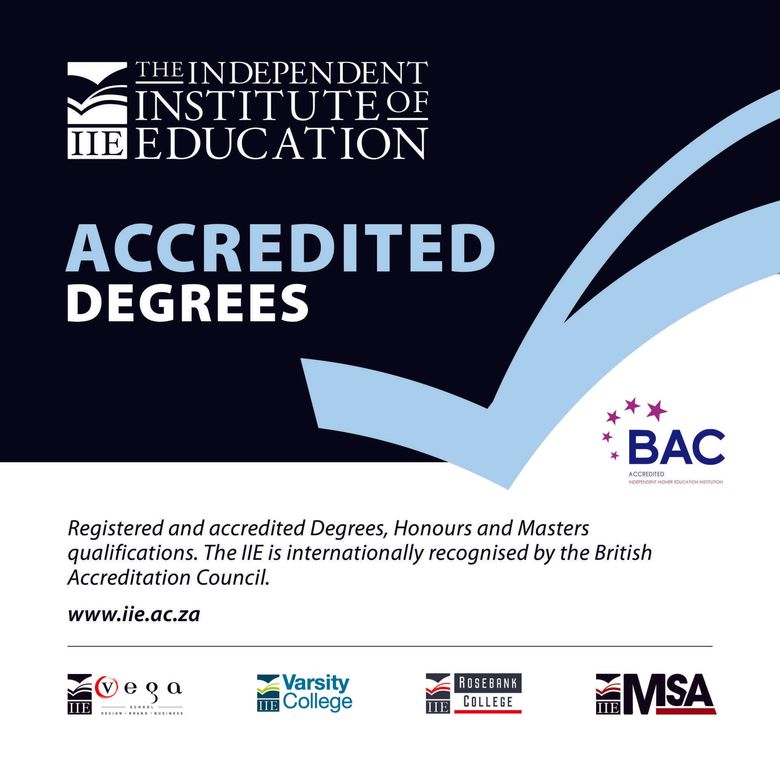HOW EMPLOYERS CAN ENSURE SUCCESSFUL ONBOARDING OF NEW GRADUATES
The World of Work • April 13, 2018
BY WONGA NTSHINGA
Senior Head of Programme: Faculty of ICT at The Independent Institute of Education, SA's largest private higher education provider.
HOW SHOULD EMPLOYERS WELCOME NEW GRADUATES IN THE 21st CENTURY?
Do we take the old, dry route of welcoming graduates by delivering company's history, policies, procedures and so on, or do we take a different, dynamic route that will be appealing and leave a positive impression on work-ready graduates?
Here are some of the approaches that employers can take to assist graduates in the working place:
Graduate Induction and Onboarding Sessions (GIOS)
– GIOS are very helpful to someone new in an organisation as they provide insight regarding organisational knowledge which would not usually be made available on specific day to day work activities. GIOS also ensure that the culture, company business and strategy are presented and that young graduates fully understand these concepts. Induction session help graduates to understand what is expected of them and how they can be productive as quickly as possible. But above everything else GIOS should sell the business to the graduate and showcase why the company exists to achieve. At these sessions graduates start to think about how they fit in, add value and grow within the organisation.
Mentoring
– Mentoring provides a solid and informed support as the graduate takes the first steps in an organisation. Also, for career development purposes a graduate needs to be assigned a senior or well-experienced employee from day one who can mentor and coach the graduate. The career mentor, who must be willing to share knowledge and motivate the graduate, must be a professional who has already walked the path the graduate will embark on. He must be willing to serve as a career advisor and internal advocate who reinforces how a mentee's job can contribute to a bigger picture and purpose in the organisation. The graduate or mentee should be positive, have passion for learning and above everything else be willing to take advice.
A proper hand-over
– needs to take place when a graduate is taking over from a candidate who is leaving or have been promoted.
Business Processes and rules
– The employer needs to ensure that the graduate understands the company business processes, products, systems and rules. Ensure that the graduate is trained on how to, for example, manage workflows and/or queries from customers and clients.
Health/Balance
– Guide the graduates on how to manage their health and balance work.
Continous Feedback from the Graduates
– It is vital for the organisation/company to assess and get feedback from the graduates about how satisfied they are, their challenges, workload/allocation, and any other comments, questions or concerns the graduates may have.
Have Short-Term Action Items and Long-Term Goals for graduates
- For example, have a strategy on how you will ensure that the graduates have a great onboarding that could see them stay and grow for a long time within your organisation. Commit to an ethos of lifelong learning in the organisation, and help employees achieve further study goals or support them when they do short courses to sharpen their tools.
The costs assossiated with finding, hiring and onboarding new employees, particularly work-ready graduates can prove to be costly to any organisation, so it's important for companies to develop the best possible induction programmes and supplement these with mentoring programmes.
Companies must never assume that new employees, particularly work-ready graduates, can handle their new roles. Support, coaching and mentoring can ensure they remain involved and will realise their potential.
ABOUT THE IIE
The Independent Institute of Education (The IIE) is a division of the JSE-listed ADvTECH Group, Africa's largest private education provider. The IIE is the largest, most accredited registered private higher education institute in South Africa, and the only one accredited by The British Accreditation Council (BAC), the independent quality assurance authority that accredits private institutions in the UK. By law, private higher education institutions in South Africa may not call themselves Private Universities, although registered private institutions are subject to the same regulations, accreditation requirements and oversight as Public Universities.
The IIE has a history in education and training since 1909, and its brands - Rosebank College, Varsity College, The Business School at Varsity College and Vega - are widely recognised and respected for producing workplace-ready graduates, many of whom become industry-leaders in their chosen fields. The IIE offers a wide range of qualifications, from post-graduate degrees to short courses, on 20 registered higher education campuses across South Africa.












